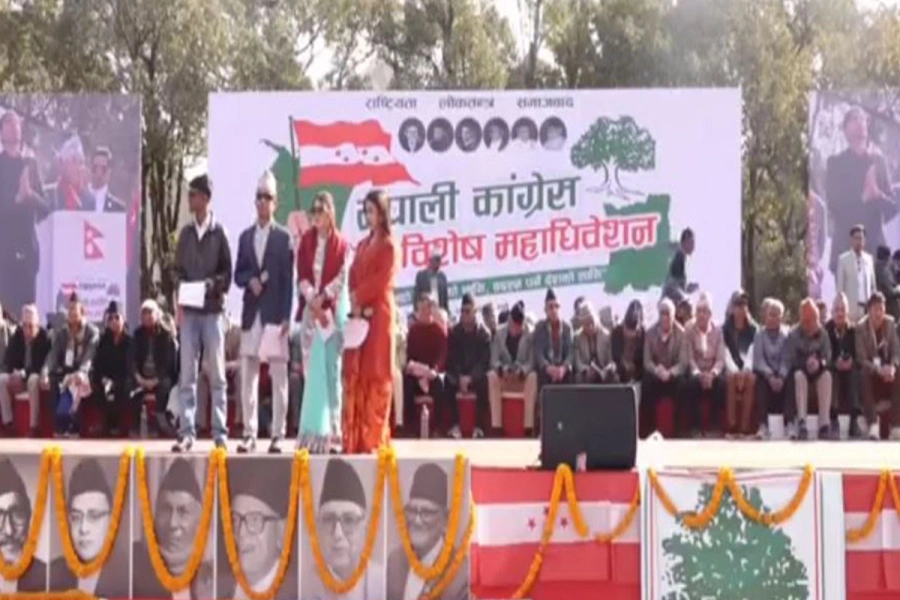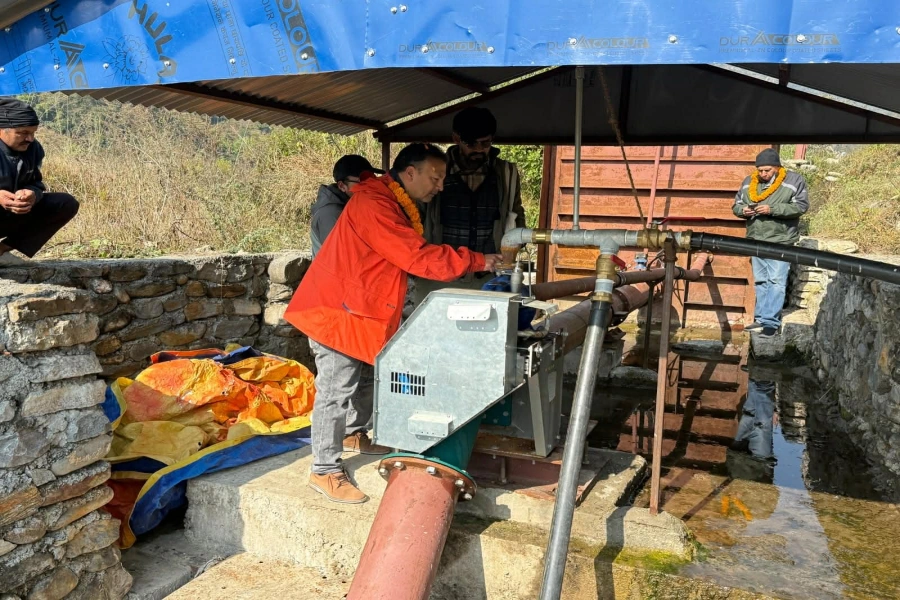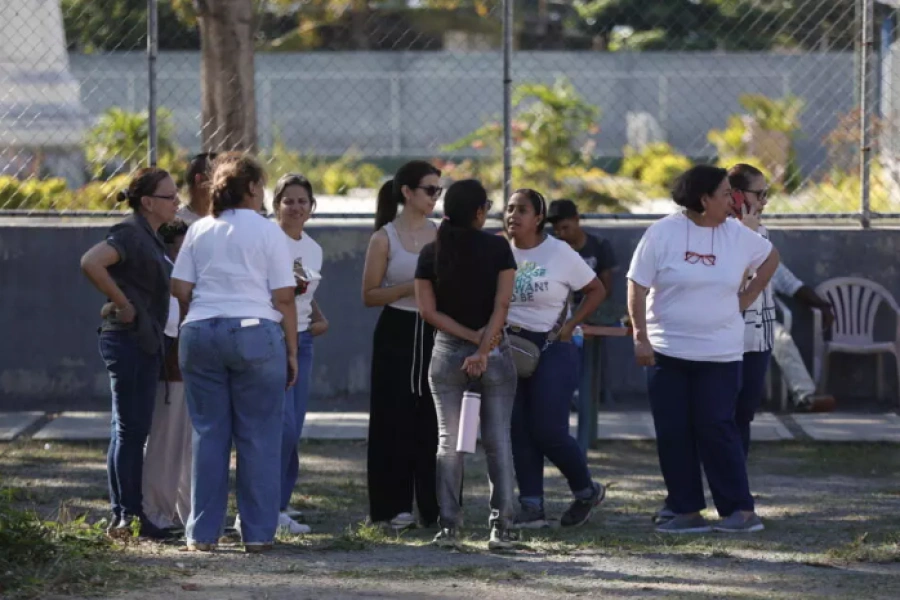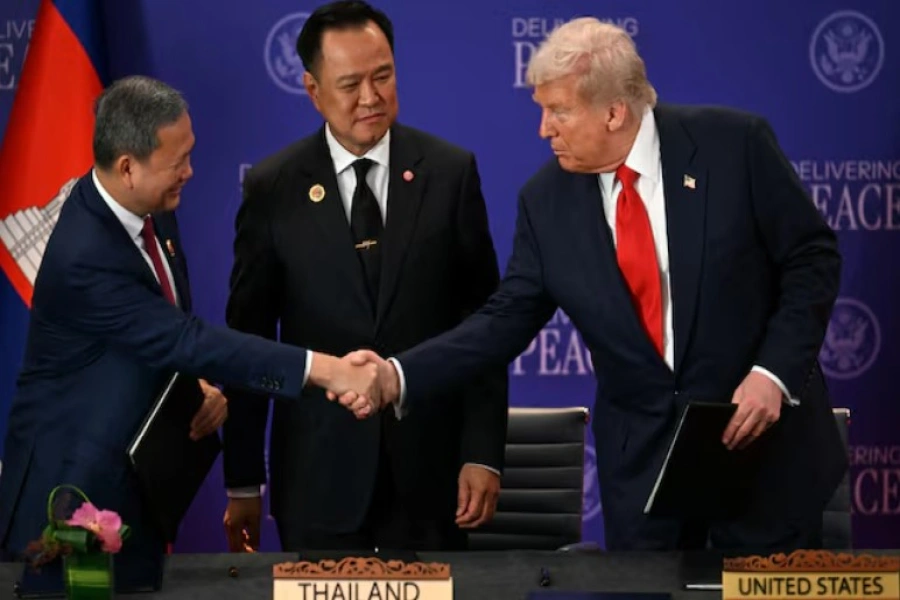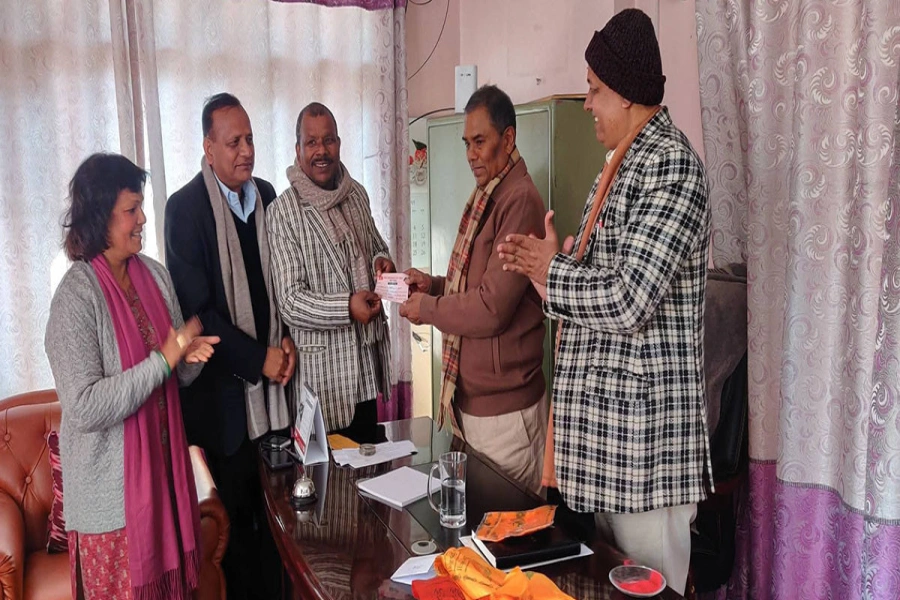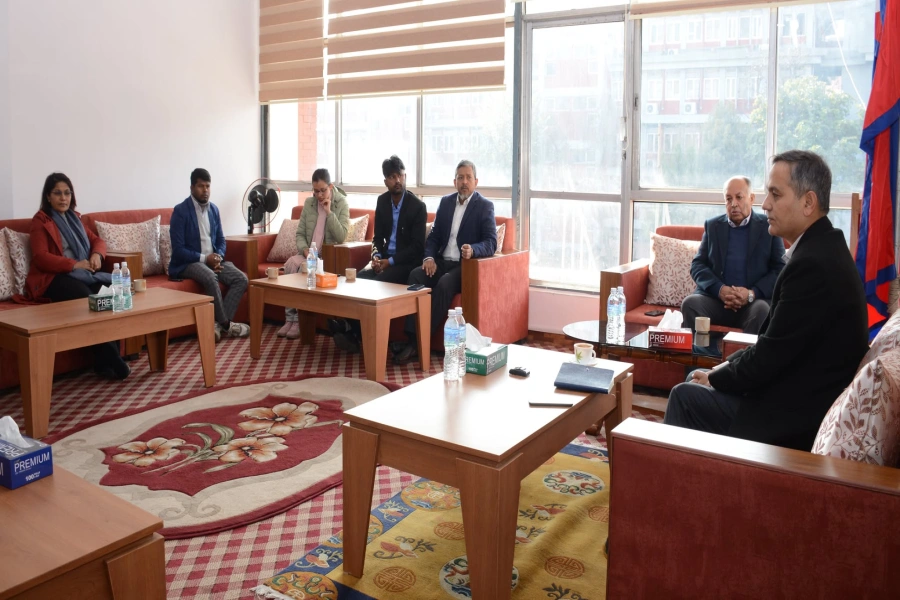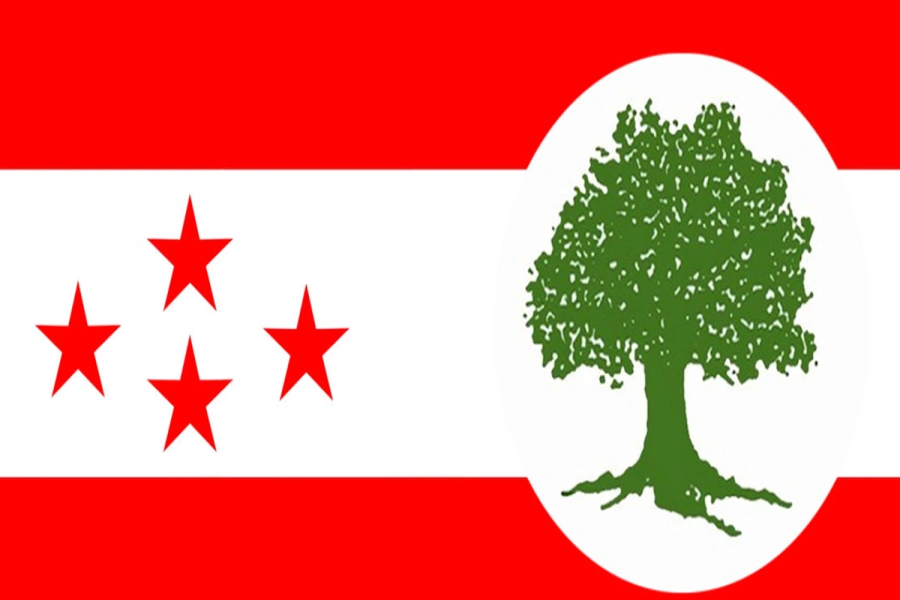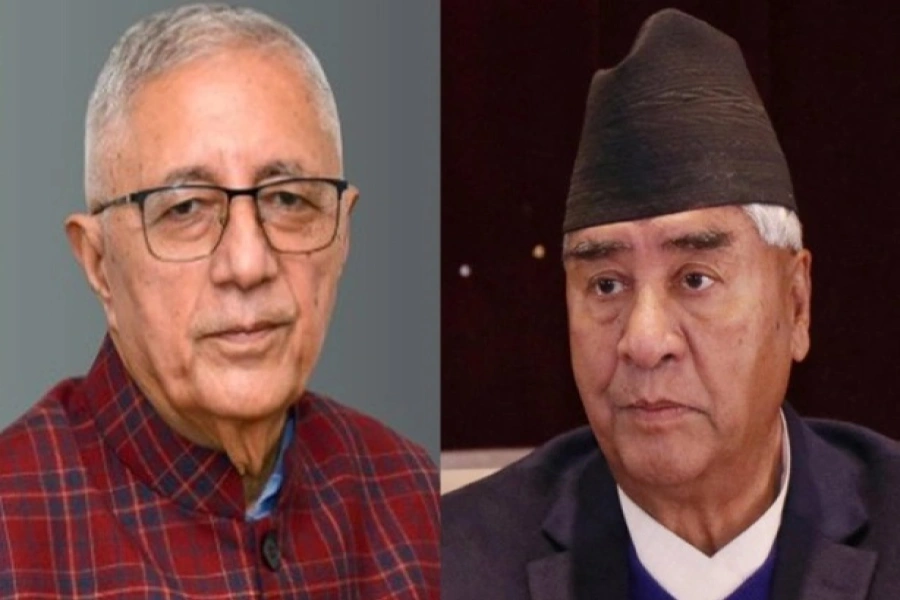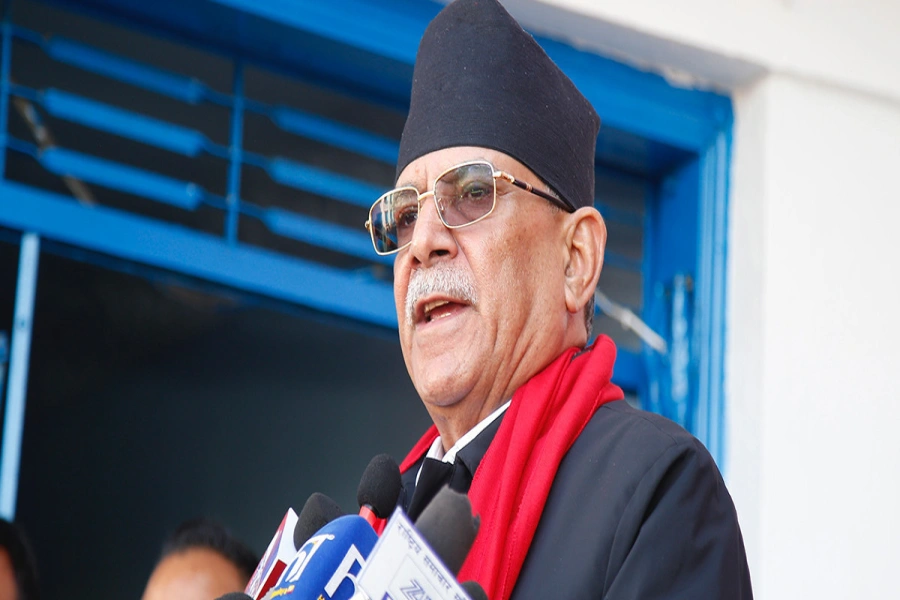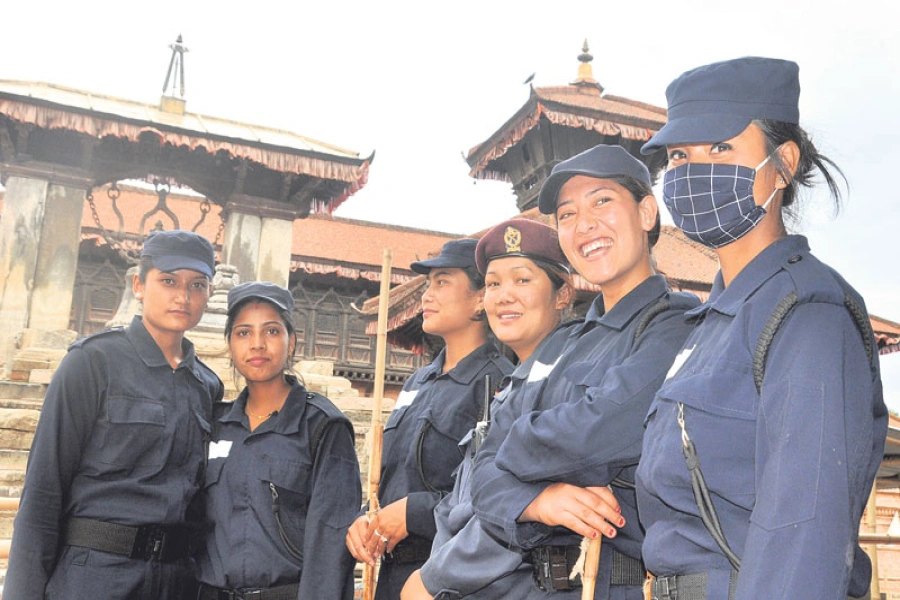October 9, Wednesday. Traffic in Kathmandu is disrupted for about three hours during office time. Passengers get off public vehicles midway and walk to their destinations. Those leaving for Dashain festivities (it is the fifth day of Navaratri and people are leaving Kathmandu in millions every day) curse the troublemakers. They are visibly panicky, wondering if they will miss the bus to their hometown. All this because hundreds of youths and party cadres are in a long march from Dillibazar via Ratnapark to Sanepa. The occasion is Nepali Congress central committee member Khum Bahadur Khadka’s release from jail. His supporters, donning white t-shirts and white caps bearing portraits and quotes of NC’s founding father late BP Koirala, are jumping with joy. “Long live Khumbahadur Dai! Long live Nepali Congress!” they chant. They honor Khadka with a 110-kg garland brought from Calcutta. The ambience of joy is amplified by the loud music of naumati baja. Youths are dancing in front of Khadka, whistling and cheering. One could easily mistake Khadka for a national hero, a freedom fighter, or people’s savior. [break]
Lucky for NC, the incident did not receive sustained media attention—thanks to Dashain festivities and the upcoming election. But the occasion has been captured in countless pictures and videos. Election fever and Dashain break cannot eclipse what happened on October 9.
By giving a hero’s welcome to Khum Bahadur Khadka, a graft convict, on the eve of election, NC has shattered the expectations of a huge mass which had been shifting its loyalty back to the GOP, disillusioned by UCPN (Maoist)’s deceptive politics and Madhesi parties’ opportunism. NC’s rivals will surely look to capitalize on this issue, projecting NC as a party controlled by corrupt elements. Make no mistake, election campaign in Nepal is still an exercise of finding faults with rival parties and candidates. This is the reason opponents project honest candidates as corrupt and immoral, and dubious candidates feign honesty and integrity while canvassing for votes. The onlookers who saw NC cadres singing the praises of a proven corrupt leader will think twice before voting for NC in November polls.
Khadka is not the only graft-convict to get a hero’s welcome. Back in 2012, when Chiranjibi Wagle was released after serving a jail sentence for corruption, his supporters had greeted him with NC’s flags. More recently, former NC leader JP Gupta’s release was cheered on his own release. But Khadka is perhaps the first leader whose wrongdoings have been celebrated with such ostentation under the party banner. He was accorded the status of national hero. This Nelson Mandela-ization of Khum Bahadur Khadka has not only defamed NC, but also sent a troubling message that those with muscle and money can pull off just about anything in the party. Khadka’s case will leave a lasting impact as he happens to be the third most popular elected central committee member in the party. His worship will not only encourage lower-rung leaders to commit graft, but lend legitimacy to corruption by party leaders. By design or default, NC has set a dangerous precedent of hailing criminal elements with money and influence.
The worst part is the loss of shame. Those who frolicked on the streets of Kathmandu that day did not seem ashamed, although Khum Bahadur himself (pictured below) looked a bit uncomfortable at the jeering eyes of onlookers as his followers sang of his glory (this scribe was stuck in the same rally and had the chance to catch a glimpse of Khadka). The loss of shame is damaging. In a civilized society, fear of social shame keeps people from committing wrong and supporting wrongdoers.
The craze for Khum Bahadur among his supporters is understandable. Informal sources say he has given jobs to each and every voter from his constituency, and treats party cadres who come to visit him in Kathmandu with sumptuous treats. It is self-evident that he can offer such lavish hospitality with the money he raked in illegally while serving as a minister more than half a dozen times. NC’s battle should have been precisely against this tendency— misusing state funds by abusing authority and distributing state resources on the basis of political loyalty.
(Republica)
The counterargument could be that Khum Bahadur worship is not in line with NC’s official policy. Those who came to the streets are Khadka’s personal loyalists who were paying him back for his favors. Things are not that simple. Even noted leaders like Purna Bahadur Khadka, Shankar Bhandari and Mohan Basnet (all three famed for their proclivity to use muscles and money to maintain influence within their constituencies as well as the party) cheered Khum Bahadur’s release in front of the television camera. NC’s silence over the episode is troubling, suggesting that the party silently supported the celebrations.
NC could have taken some measures to bolster its image. It should have suspended leaders convicted of graft—such as Chiranjibi Wagle and Khum Bahadur Khadka—at least for a short period. Even Madhesi People’s Rights Forum (Republican) dissociated itself from party chairman JP Gupta following his jail sentence. NC can still mend its ways. It can ask those leaders (who are also NC’s FPTP election candidates) why they celebrated the release of a corrupt party member. It can tell the people that the celebration was an act of deviation by some leaders. Or it should declare that the gala was carried out under party policy.
NC youths and cadres who surrounded Khum Bahadur that day were wearing white t-shirts engraved with BP Koirala’s revolutionary quote: Malai dash rupiyako golile marna sakchhau tara mero bichar ra siddhantalai kahilei marna sakdainau (You can kill me with a bullet worth ten rupees, but you cannot kill my ideology and conviction). Khum Bahadur has claimed time and again that he had been targeted by party leadership because of his devotion to BP’s ideology. One wonders if Khum Bahadur is NC’s representative to promote BP’s ideology today.
Popular NC leader Gagan Thapa (who often raises a voice against injustice within the party, but whose silence on Khum Bahadur celebration has bewildered many) wrote an impressive blurb for Sudheer Sharma’s recently published book Prayogsala. The blurb roughly translates as: “An eighteen year old youth who has read both Prayogsala and [UCPN (Maoist)’s] election manifesto goes to cast his vote. What will come to his mind: the empty promises of manifesto or the revelations made by this book?” Thapa is insinuating that UCPN (Maoist)’s rhetoric of nationalism and national sovereignty was misleading and that the Maoists started the era of increased foreign meddling in internal politics. No denying it. But the question before NC today should be: What will a NC sympathizer do if he recalls the images of Khum Bahadur celebration before he cast his vote? Will he still vote for NC or will he change his mind?
mbpoudyal@yahoo.com
General Secretary duo inaugurate NC Special General convention
